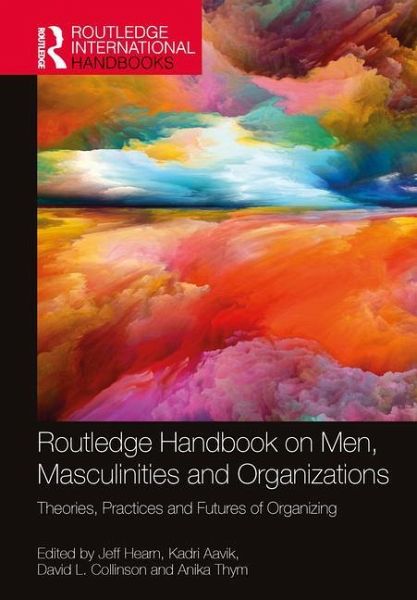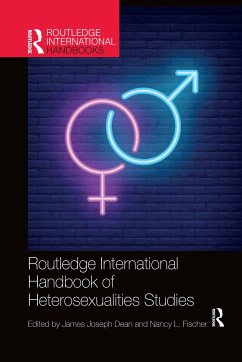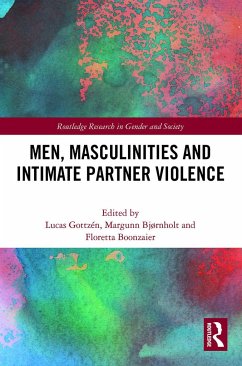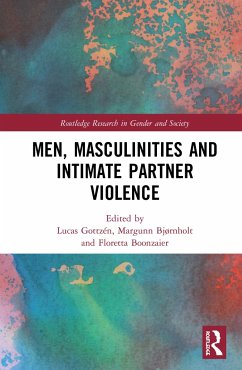
Routledge Handbook on Men, Masculinities and Organizations
Theories, Practices and Futures of Organizing
Herausgegeben: Hearn, Jeff; Aavik, Kadri; Collinson, David L.; Thym, Anika
Versandkostenfrei!
Versandfertig in 6-10 Tagen
245,99 €
inkl. MwSt.
Weitere Ausgaben:

PAYBACK Punkte
123 °P sammeln!
This Handbook provides new theoretical and empirical insights into men, men's practices and masculinities across many kinds of organizations and forms of organizing. Most mainstream studies of organizations, leadership and management do not seem to notice they are often talking a lot about men and masculinities. The Handbook challenges this general tendency to avoid gendering men by bringing together a range of theoretical and methodological approaches that:engage with not only formal organizations, such as businesses and state organizations, but also processes of organizing within and beyond ...
This Handbook provides new theoretical and empirical insights into men, men's practices and masculinities across many kinds of organizations and forms of organizing. Most mainstream studies of organizations, leadership and management do not seem to notice they are often talking a lot about men and masculinities. The Handbook challenges this general tendency to avoid gendering men by bringing together a range of theoretical and methodological approaches that:
engage with not only formal organizations, such as businesses and state organizations, but also processes of organizing within and beyond organizations;address emergent and future issues on men, masculinities and organizations, such as tech masculinities, men's emotions, sexualities and violences, animal advocacy and environmental issues, and men and masculinities in pandemics.
Targeted at scholars, policymakers, practitioners and students interested in links between men, masculinities, organizations and organizing,this landmark Handbook is an invaluable resource for those working in and beyond such fields as gender studies, organization, leadership and management studies, political science, sociology, social and public policy, and social movement studies.
Chapter 28 of this book is freely available as a downloadable Open Access PDF at http://www.taylorfrancis.com under a Creative Commons Attribution-Non Commercial-No Derivatives (CC BY-NC-ND) 4.0 license.
engage with not only formal organizations, such as businesses and state organizations, but also processes of organizing within and beyond organizations;address emergent and future issues on men, masculinities and organizations, such as tech masculinities, men's emotions, sexualities and violences, animal advocacy and environmental issues, and men and masculinities in pandemics.
Targeted at scholars, policymakers, practitioners and students interested in links between men, masculinities, organizations and organizing,this landmark Handbook is an invaluable resource for those working in and beyond such fields as gender studies, organization, leadership and management studies, political science, sociology, social and public policy, and social movement studies.
Chapter 28 of this book is freely available as a downloadable Open Access PDF at http://www.taylorfrancis.com under a Creative Commons Attribution-Non Commercial-No Derivatives (CC BY-NC-ND) 4.0 license.














